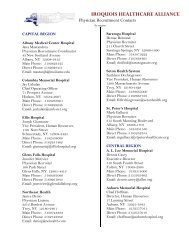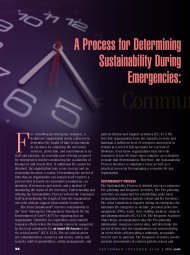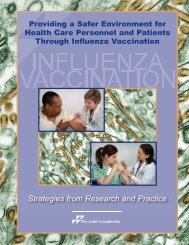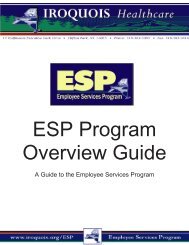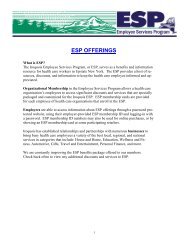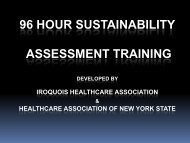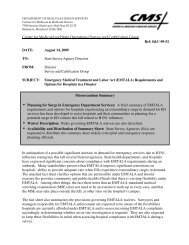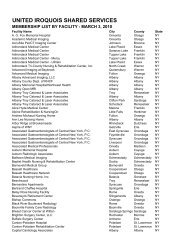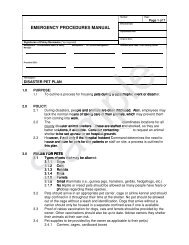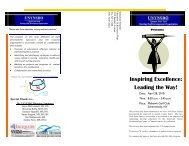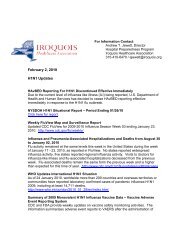NYS Public Health Legal Manual: A Guide for Judges, Attorneys ...
NYS Public Health Legal Manual: A Guide for Judges, Attorneys ...
NYS Public Health Legal Manual: A Guide for Judges, Attorneys ...
Create successful ePaper yourself
Turn your PDF publications into a flip-book with our unique Google optimized e-Paper software.
NEW YORK STATE PUBLIC HEALTH LEGAL MANUAL § 1.49<br />
Commentary<br />
A right to counsel implies that counsel must be provided if the person<br />
cannot af<strong>for</strong>d counsel. However, as the City <strong>Health</strong> Code recognizes,<br />
the timing and mechanics of the providing of such counsel<br />
may be dependent on the circumstances of the health crisis. See<br />
<strong>Health</strong> Code [24 RCNY] § 11.23(g)(1)(v) and (2)(iii). The responsibility<br />
of a public entity to pay <strong>for</strong> assigned counsel <strong>for</strong> indigents is<br />
governed by statute. See County Law, Article 18-B [county to pay in<br />
criminal cases]; Judiciary Law § 35 [state to pay in enumerated civil<br />
cases]. Neither Article 18-B nor section 35 applies here. In the<br />
absence of a statute setting <strong>for</strong>th which entity should pay <strong>for</strong> counsel<br />
provided to isolated or quarantined persons who are indigent, the<br />
locality would have to work out an arrangement with counsel.<br />
[1.49] 4. Subsequent Judicial Retention Orders<br />
There are no provisions in the PHL that require subsequent judicial<br />
review of the need <strong>for</strong> confinement. Nevertheless, some local plans provide<br />
<strong>for</strong> the local health officer to periodically seek judicial review of the<br />
initial PHL § 2120 judicial order, to ensure that there still is a justifiable<br />
basis <strong>for</strong> continued confinement. • New York City: <strong>Health</strong> Code [24<br />
RCNY] § 11.23(f) [The Commissioner of <strong>Health</strong> must seek further court<br />
review of the confinement every 90 days].<br />
Commentary<br />
The same procedural due process requirements that apply to the deprivation<br />
of liberty caused by initial confinement of an infected person<br />
would apply to the continued confinement of that person. At<br />
some point, the confined individual would have a constitutional right<br />
to a hearing on the necessity <strong>for</strong> the continuation of the confinement.<br />
See Project Release v. Prevost, supra, 722 F.2d at 965 [upholding<br />
civil commitment statute that provided, inter alia, <strong>for</strong> judicial review<br />
every 60 days]. As with all procedural due process evaluations, the<br />
actual time limit <strong>for</strong> subsequent re-examination of the need <strong>for</strong> confinement<br />
would depend on the factual basis <strong>for</strong> the confinement and<br />
the balance between the individual and governmental interests at<br />
stake.<br />
25



